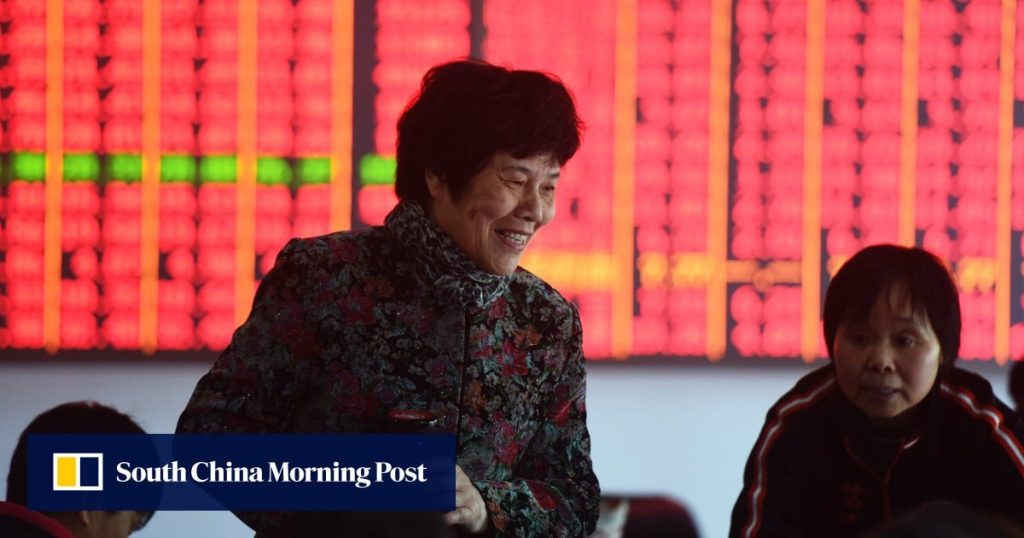Households continued to shift money into mainland China’s US$12.7 trillion stock market last month, suggesting that a rally in equities has room to run, according to data published by the central bank.
Deposits at non-banking financial institutions rose by 1.17 trillion yuan (US$164.3 billion) in August, marking a second month of increases after July saw an inflow of 2.15 trillion yuan, data from the People’s Bank of China showed. The figure covers money parked at brokerages, mutual-fund companies and trust firms.
M1, a money-supply gauge measuring demand deposits that can be taken out from banks at any time, rose 6 per cent year on year, the fastest since January 2023, indicating that money was primed for investment after conversion from term deposits, according to the data.
“Low-interest-rate policies are squeezing the returns from traditional banking deposits,” said Wang Kai, an analyst at Guosen Securities in Shanghai. “That has set the stage for capital shifting out for better returns. The trend is taking hold that the rotation is heading towards the capital market now.”
After years of underperformance, Chinese stocks now stand out across asset classes. The earnings yield of China’s biggest listed companies, which measures how much companies return in earnings for each dollar invested, is at 5.5 per cent, according to Bloomberg data. That compares with the 1.791 per cent yield on China’s 10-year government bonds and the less than 1 per cent interest rates the large, state-owned banks pay on demand deposits.


